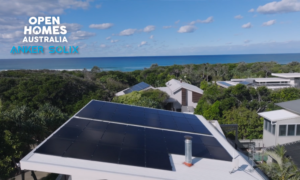The value of electricity increased by 43% over 4 years; but Australians were using 4% less power.
A report released last week by the Australian Bureau of Statistics (ABS) shows the total purchasing price value of electricity consumed by households between 2008-09 and 2011-12 increased by 43 per cent or $4 billion.
However, the total volume of electricity consumed by households decreased by four per cent or eight petajoules during that period.
“The quantity of coal used to produce electricity decreased by two per cent or 22 petajoules but the total value of the coal used in the production of electricity increased by six per cent or $93 million,” said Peter Williams from the Australian Bureau of Statistics.
“Put simply, nationally we are using less coal to produce electricity but it is costing more to use.”
Earlier this month, the Australian Energy Market Operator (AEMO) forecast electricity consumption in the National Electricity Market (NEM) to continue to decline over the next three years.
The 2014 National Electricity Forecasting Report (NEFR) states the ongoing reduction in residential and commercial consumption in most NEM regions is due to strong uptake in rooftop solar panel system installations and continuing energy efficiency savings.
“In the short term, rooftop PV output is forecast to grow in all regions as PV system installation costs continue to fall while government financial incentives remain static,” states the AEMO.
“Across the NEM, annual average growth of 23.6% in rooftop PV drives down overall consumption from the grid. In 2013-14, rooftop PV results in a 2.9% reduction in consumption from the grid. “
The AEMO’s report shows that excluding LNG projects in Queensland, there will be a 1.1% average annual decrease in overall NEM electricity consumption to 2016-17.














































